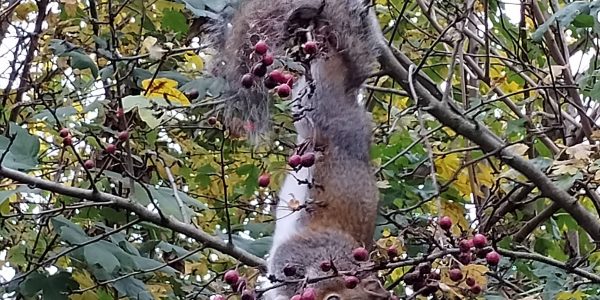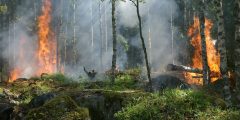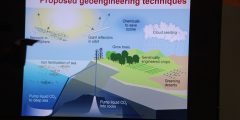Tipping point
September 16, 2022
Over the past 15 years or so, the use of the term ‘tipping point’ has exploded in the scientific literature. My current interest was sparked by a new paper on tipping points published in Science. The lead author is David Armstrong McKay, a University of Exeter Earth systems scientist, and the paper is an update …
Climate change and language change
July 1, 2022
For over ten years I have now been thinking and writing about extreme weather events, especially floods and fires, and how they are verbally and visually represented in the media and beyond. Over that decade the issue of extreme weather has become increasingly topical and people no longer hesitate to discuss this topic in the …
Extreme event/weather communication
May 27, 2022
Communication sciences span a large array of fields and issues. We have science communication, risk communication, crisis communication, health communication, and, of course climate change communication. Over the last few years, it has become clear to me that when it comes to climate and weather, all these communication efforts converge and become part of what …
The IPCC report: Impacts, adaptation and vulnerabilities
March 4, 2022
When I think about the latest IPCC report, which came out on 28 February, these sentences come to my (German) mind: Eintritt streng verboten! Eintritt strengstens verboten!! Eintritt allerstrengstens verboten!!! (Entry strictly forbidden. Entry very strictly forbidden. Entry extremely strictly forbidden.) These words are written on warning signs that adorn three doors in the classic …
The concept of net zero hangs in the balance
November 12, 2021
‘Net zero’ has been in the air for a while and I let it waft over me without taking much notice. However, a few days ago I read Ken Rice’s thoughts on this matter on his And Then There’s Physics blog. He argues against a “recurring narrative that the concept of net-zero is flawed”, saying …
IPCC reports, climate change and language work
September 6, 2021
This blog post is not about climate change communication. It is about what I call the ‘language work’ carried out by scientists when writing the various IPCC reports. Introduction On 9 August 2021 the first part of the Sixth Assessment Report of the Intergovernmental Panel on Climate Change, namely the Contribution of Working Group 1 …









